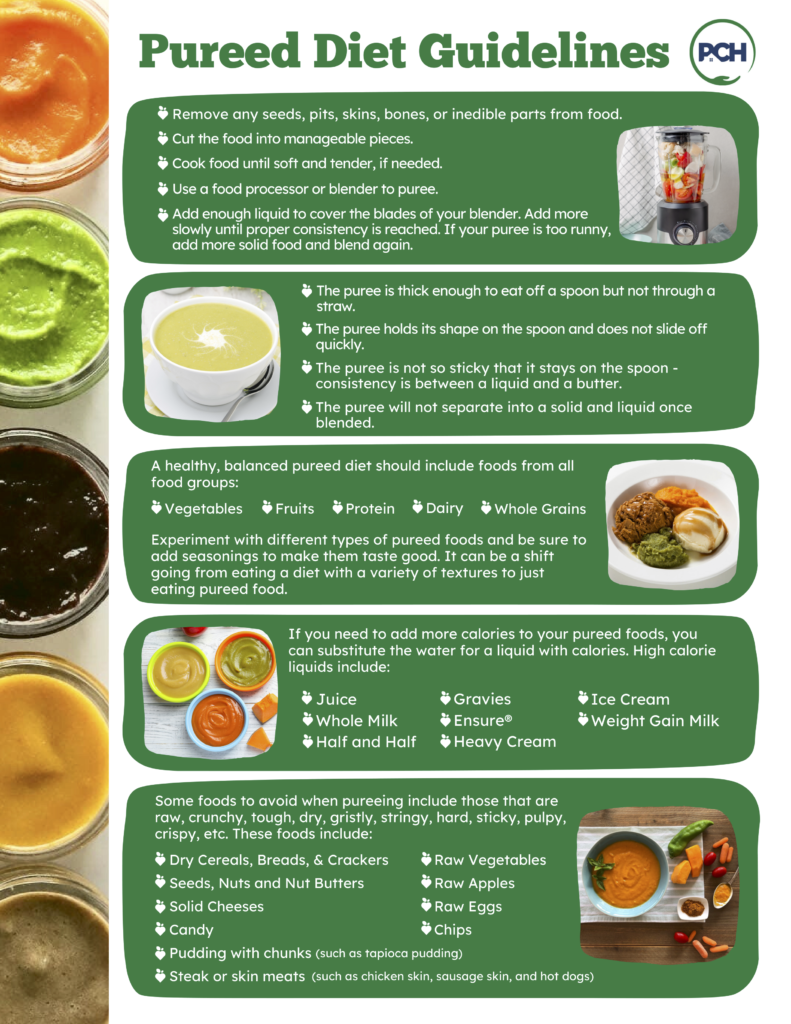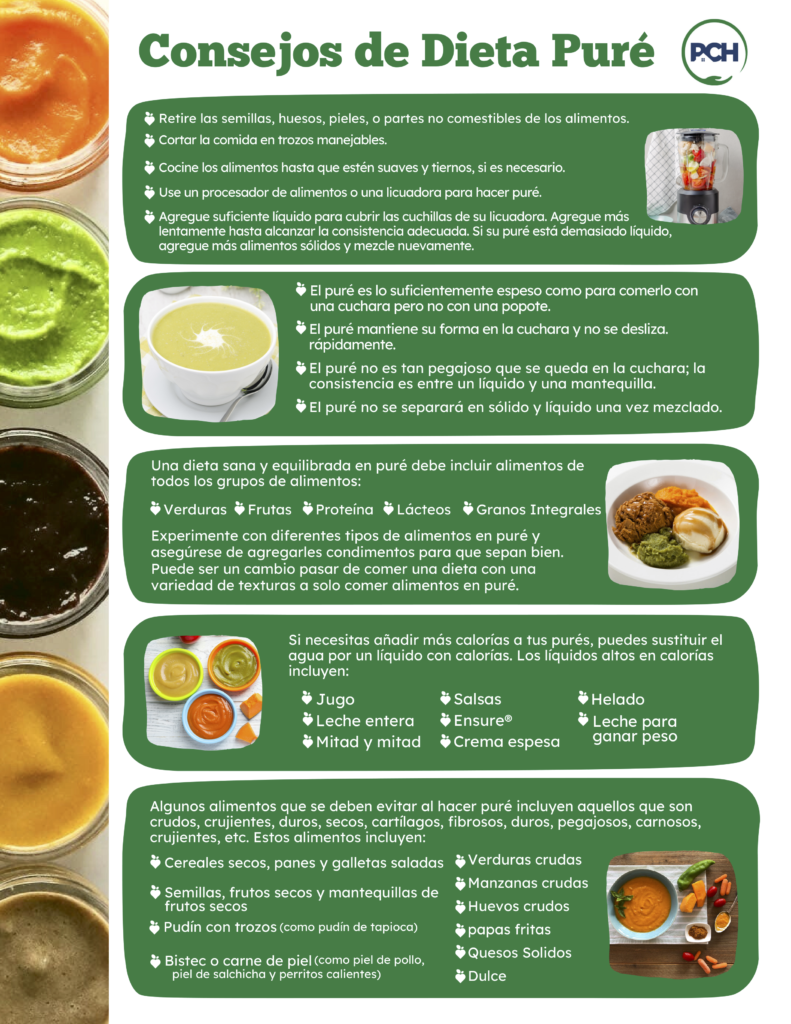Specialized Diets for Senior Care
It is important to understand the types of diets recommended for your residents’ health conditions and dietary needs but can be difficult to know which foods should be included and avoided in specialized diets. Take steps to educate yourself and your staff on specialized diets.

As the operator of a personal care home, you may need to administer different types of diets depending on the residents’ health conditions and dietary needs. It can be difficult to know which foods should be included and avoided in each type of specialized diet but these guidelines should assist you and we have provided a printable pdf of Pureed Diet info that you can download through your PCALIC login.
Regular Diet:
This diet includes a variety of foods and is suitable for residents with no specific dietary restrictions.
Mechanical Soft Diet:
This diet includes foods that are easy to chew and swallow, such as cooked vegetables, tender meats, and soft fruits. It is often prescribed for residents with dental problems or swallowing difficulties. It is only slightly different from a pureed diet which requires no chewing at all. For more information on a mechanical soft diet and pureed diet and their differences, see the IDDSI guidelines.
Pureed Diet:
A pureed diet is typically recommended for individuals who have difficulty chewing or swallowing solid foods due to a medical condition such as dysphagia or other swallowing difficulties. The goal of this diet is to provide all the necessary nutrients in a smooth, easy-to-swallow form. Foods are typically pureed to a smooth consistency and may include mashed potatoes, cooked fruits, well-cooked vegetables, and pureed meats. Thickening agents may also be added to liquids to make them easier to swallow. Download the Guidelines from the Member Resources at PCALIC.com.


Diabetic Diet:
A diabetic diet is designed to help individuals with diabetes manage their blood sugar levels. This diet typically involves reducing the intake of sugar and simple carbohydrates and increasing the intake of complex carbohydrates, fiber, and healthy fats. Foods that are high in sugar, such as candy and soda,
should be avoided, while whole grains, vegetables, fruits, lean proteins, and healthy fats, such as olive oil and nuts, should be emphasized.
Renal Diet:
A renal diet is designed for individuals with kidney disease, which can affect the body’s ability to remove waste and excess fluids from the bloodstream. This diet typically involves reducing the intake of potassium, phosphorus, and sodium to help reduce the workload on the kidneys. Foods that are high in these nutrients, such as processed foods, red meat, dairy products, and some fruits & vegetables (dried fruits, bananas, avocados, apricots, kiwi, and oranges), and beans & lentils, should be limited. Foods such as lean proteins, whole grains, fruits (grapes, berries, pineapple, mango, & apples) and vegetables with low potassium content, and foods low in sodium should be emphasized. It’s important to note that everyone’s dietary needs are different, and individuals with kidney disease should work with a registered dietitian to develop an individualized meal plan that meets their specific needs.
Low-Sodium Diet:
A low-sodium diet is typically recommended for individuals with high blood pressure or heart disease, as excess sodium can lead to fluid retention and increased blood pressure. This diet involves reducing the intake of sodium from foods and beverages. Foods that are high in sodium, such as processed foods, canned goods, olives, cured meats, pickled vegetables, vegetables made with ham, bacon or salted pork, commercially prepared pasta and tomato sauces and salsa, and some types of cheese, should be limited. Fresh fruits and vegetables, lean proteins, and foods that are naturally low in sodium should be emphasized. In general, a low-sodium diet should contain less than 2,300 milligrams of sodium per day, but individuals with certain medical conditions may need to restrict their sodium intake even further.
Low-Fat Diet:
This diet limits the amount of fat in foods and is often recommended for residents with heart disease or high cholesterol.
Gluten-Free Diet:
This diet is designed for residents with celiac disease or gluten sensitivity and excludes foods that contain gluten, such as wheat, barley, and rye. Gluten can be found in many processed, packaged products so be sure to read the nutrition label closely each time you purchase as ingredients can change and cross-contamination is an issue.
It is important for assisted living facilities or personal care homes to have a registered dietitian available to assess residents’ dietary needs and develop appropriate meal plans.